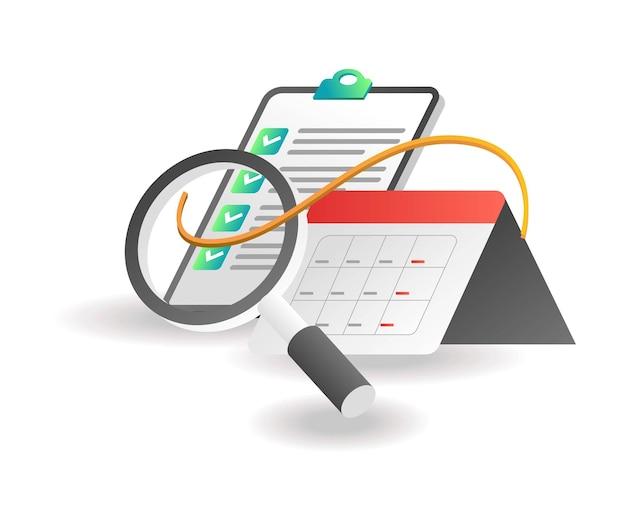Welcome to our blog post on the advantages of audit working papers! As we dive into this topic, we will explore what working papers are, how they are written, and the purpose they serve in the audit process. If you’ve ever wondered about the importance of these documents and their impact on audits, you’re in the right place.
Audit working papers play a crucial role in the auditing world, providing a detailed record of the procedures performed, evidence obtained, and conclusions drawn during an audit engagement. These documents serve as a road map for auditors, allowing them to efficiently and effectively plan, conduct, and review their work. In this blog post, we will uncover the benefits of using audit working papers, shedding light on their role in ensuring the accuracy and reliability of audit findings. So, let’s get started!

The Advantages of Audit Working Papers
Importance of Proper Documentation in Auditing
In the world of auditing, proper documentation is key. It not only helps auditors keep track of their work but also provides a solid foundation for future engagements. Audit working papers, or simply “AWPs,” are the lifeblood of an audit. These documents capture the auditor’s thought process, the procedures performed, and the evidence obtained during the audit engagement. So, what exactly are the advantages of audit working papers? Let’s dive in and find out!
1. Organized Chaos: Keeping Order in the Auditor’s Universe
Imagine an auditor’s desk without audit working papers – a chaotic mess of scattered documents, post-it notes, and coffee stains. It’s a scene straight out of a comedy sketch! Audit working papers bring a much-needed dose of organization to an auditor’s life. From checklists to flowcharts, these papers help auditors structure their work, ensuring no stone is left unturned. Believe it or not, even auditors need a bit of order in their universe!
2. Trailblazing the Audit: A Map to Success
Think of audit working papers as a treasure map that leads auditors to their pot of gold – a clean audit opinion. These papers provide a clear record of the steps taken during the audit and the conclusions reached. In case of any questions or challenges down the road, these documents serve as the auditor’s compass, guiding them back to their initial findings. So, when auditors say they’re leaving a paper trail, they’re not talking about littering – they’re talking about paving the road to success!
3. Collaboration Made Easy: Flying Solo on a Team
Auditing may seem like a solitary profession, but auditors often work in teams. Audit working papers act as a common language among auditors, facilitating collaboration and communication. These papers allow team members to pick up where others left off, seamlessly continuing the audit work. It’s like passing the baton in a relay race, but instead of a baton, it’s a neat folder filled with working papers. No runner likes dropped batons, and no auditor likes dropped audit trails!
4. Historic Footprints: Building a Time Machine
Audit working papers have a magical ability – they can transport auditors back in time. Okay, maybe not literally, but close enough! By reviewing previous audit working papers, auditors can gain valuable insights into past engagements. It helps auditors identify trends, assess risks, and get a feel for the client’s history. It’s like being a detective, but instead of solving crimes, auditors solve financial mysteries. Time travel might not be available yet, but at least auditors have their trusty working papers!
5. Silent Storytellers: “Once Upon an Audit”
If audit working papers could talk, they would have some incredible stories to tell! These documents silently narrate the auditor’s journey – from the initial planning stages to the final opinion. They capture the struggles, triumphs, and a few “I need more caffeine” moments along the way. For future audits, these papers become a tale of lessons learned, a roadmap of efficient procedures, and the foundation for continuous improvement. Move over, bedtime stories – auditors have their very own saga!
Time to Embrace the Power of Audit Working Papers!
There you have it – the advantages of audit working papers laid bare, with a dash of humor and a sprinkle of storytelling. These invaluable documents streamline the audit process, promote collaboration, and provide auditors with a historical perspective. So, in the exciting world of auditing, don’t underestimate the power of a well-crafted audit working paper. It’s the auditors’ secret weapon, the backbone of their profession, and the key to unleashing the full potential of their audits. Embrace the power of audit working papers, and let them lead you on an audit adventure like no other!

FAQ: Advantages of Audit Working Papers
What are working papers in auditing
Working papers are documents prepared by auditors during the course of an audit engagement. These papers contain the auditor’s analysis, findings, and conclusions on various aspects of the audit. Essentially, they serve as evidence of the audit work performed and provide support for the auditor’s opinion.
How do auditors create working papers
Auditors create working papers by diligently documenting their procedures, observations, and results throughout the audit process. This includes details of their planning, risk assessments, testing, and any issues that may arise. By maintaining thorough and well-organized working papers, auditors can effectively communicate their findings and provide a trail of their work for future reference.
What is the purpose of an audit plan
The audit plan, also known as the audit program, outlines the scope, objectives, and procedures that auditors will follow during an audit. It serves as a roadmap to guide auditors in conducting their work, ensuring that all relevant areas are thoroughly examined. By having a well-designed audit plan, auditors can improve efficiency, minimize errors, and achieve reliable audit results.
Do auditors receive good compensation
Ah, the money question! Well, it depends. Auditors can certainly earn a respectable income, especially as they gain experience and climb up the corporate ladder. The salary of an auditor can vary based on factors such as location, industry, qualifications, and the size of the firm they work for. While auditing may not make you a millionaire overnight, it does offer solid career prospects and financial stability.
What is the audit life cycle
Think of the audit life cycle as a journey that auditors embark on when conducting an audit. It consists of several stages, including planning, risk assessment, testing, reporting, and follow-up. Each stage is carefully sequenced to ensure a systematic and thorough examination of an organization’s financial statements, controls, and compliance with regulations.
Can you give some examples of audit objectives
Certainly! Audit objectives can vary depending on the nature and purpose of the audit. Some common examples include assessing the accuracy of financial statements, evaluating the effectiveness of internal controls, investigating potential fraud or mismanagement, and providing assurance on compliance with laws and regulations. Ultimately, the objectives are tailored to meet the specific needs and expectations of the stakeholders involved.
What is the primary objective of internal audit
The primary objective of internal audit is to provide independent and objective assurance to an organization’s management and board of directors. Internal auditors play a crucial role in evaluating and enhancing the effectiveness of risk management, control, and governance processes. By identifying weaknesses and suggesting improvements, they help organizations mitigate risks and achieve their objectives.
What are the three types of audits
The three main types of audits are financial audits, operational audits, and compliance audits. Financial audits focus on examining an organization’s financial statements and ensuring their accuracy and compliance with accounting principles. Operational audits delve into the efficiency and effectiveness of an organization’s operations, while compliance audits verify adherence to laws and regulations.
Why is night audit important
Ah, the mysterious world of night audit! Night audit refers to the process of reconciling financial transactions that occur during the night shift at hotels, typically between the closing of one business day and the opening of the next. It’s like the nocturnal guardian of financial integrity! Night audit is important as it helps ensure accurate accounting records, resolves discrepancies, generates reports, and prepares for the smooth operation of the new day.
Who is responsible for preparing the audit plan
The responsibility for preparing the audit plan typically lies with the auditor or the audit team. They carefully assess the organization’s risks, objectives, and requirements to develop a tailored plan that identifies the areas to be audited, the procedures to be performed, and the timeline for completing the audit. The audit plan serves as a blueprint to guide the audit team throughout the engagement.
How many events are there in the audit life cycle
In the enchanting world of audit, the audit life cycle typically consists of four magical events. These events include planning, fieldwork, reporting, and follow-up. Each event carries its own significance and contributes to the overall success and reliability of the audit. From the initial planning stages to the final follow-up, auditors diligently carry out these events to shed light on the financial mysteries that lie within an organization.
What is the audit process
Ah, the thrilling audit process! This process involves a series of steps that auditors follow to examine and assess an organization’s financial records, systems, controls, and compliance. It begins with planning and risk assessment, followed by the actual fieldwork where auditors collect evidence and perform various testing procedures. Next, findings are analyzed and a report is prepared. Finally, auditors conduct follow-up procedures to ensure any identified issues are properly addressed. It’s like an investigative adventure filled with numbers and meticulous detective work!
Are working papers reliable
Absolutely! Working papers are the backbone of an audit engagement. They are meticulously prepared, maintained, and reviewed to ensure accuracy, relevance, and reliability. Working papers provide a transparent record of the audit procedures performed, facilitating a deeper understanding of the audit work and forming the basis for the auditor’s opinion. So, rest assured, audit working papers are as reliable as a trusty sidekick!
What are some common types of working papers
Ah, the diverse world of working papers! Auditors wield a mighty array of documents to support their audit work. Some common types of working papers include checklists, spreadsheets, flowcharts, correspondence, analytical procedures, and copies of financial statements. These working papers serve as evidence, tools, and references throughout the audit, helping auditors in their quest for truth and financial accuracy.
What is the basic principle of auditing
At the core of auditing lies the principle of independence. Auditors must remain impartial and free from any conflicts of interest. This independence ensures that auditors can deliver objective and unbiased opinions on an organization’s financial statements, internal controls, and compliance. By upholding this principle, auditors maintain the trust and confidence of the stakeholders relying on their professional judgment.
What are the purposes of audit documentation
Ah, the wonder of audit documentation! Audit documentation serves multiple purposes in the magical realm of auditing. It provides evidence of the work performed, supports the auditors’ findings and conclusions, enables continuity of the audit engagement, and facilitates review and quality control. Essentially, audit documentation is like a treasure trove of information, preserving the story of the audit and serving as a valuable resource for future audits.
And there you have it, a delightful assortment of frequently asked questions and answers about the advantages of audit working papers. With this knowledge in your grasp, you’ll be well-equipped to navigate the wondrous world of auditing! Happy auditing, my friend!
